AITA for removing my birth control without consulting my husband first
She faced a storm of emotions and physical turmoil, seeking relief by removing her hormonal implant. Hoping for understanding and partnership, she chose a path to heal her body naturally, unaware that this decision would ignite a firestorm of mistrust and accusation from her husband and his family.
Caught between her own needs and the weight of sus**cion, she struggles with the fracture in their communication, questioning whether her choice for autonomy has become a battleground for control and doubt in their relationship.

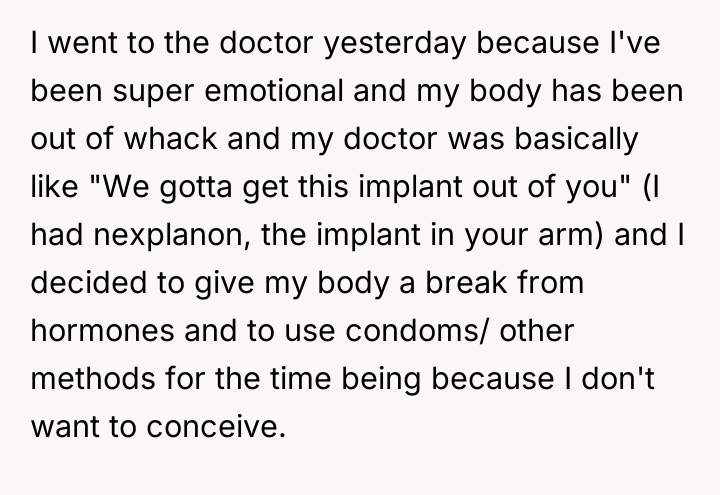
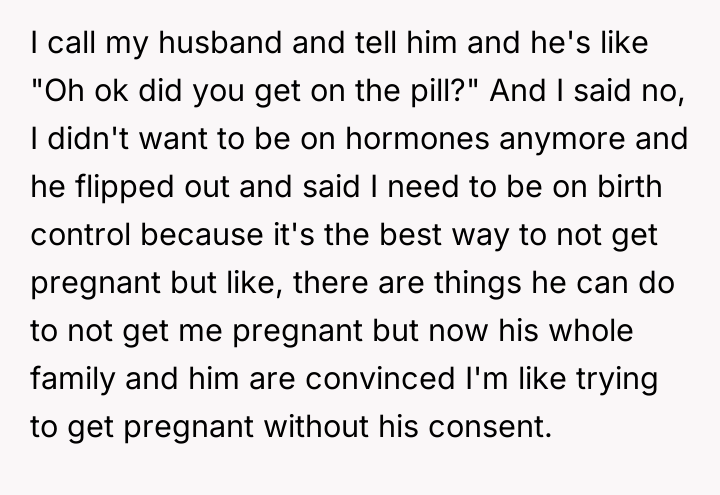
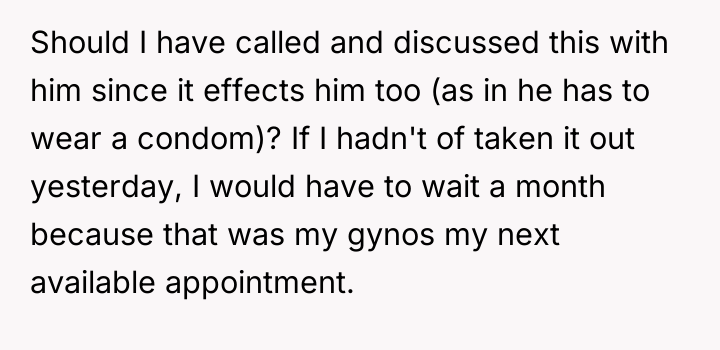
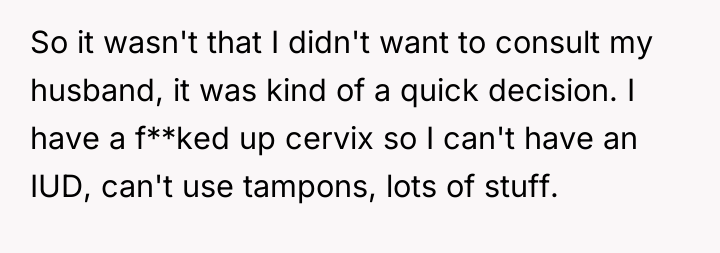
Subscribe to Our Newsletter
As renowned family therapist and researcher Dr. Terri Apter explains, “Couples negotiate power in various domains of their relationship, and reproductive control is often a major battleground.” This situation clearly illustrates a breakdown in joint decision-making regarding reproductive health, which impacts both partners fundamentally. The OP's decision to remove the Nexplanon was driven by personal health concerns (adverse reactions to hormones) and medical timing, making it an urgent issue for her body. However, because contraception is a shared responsibility when pregnancy is a risk, her husband perceived the unilateral action as a unilateral shift in the couple's agreed-upon risk level, leading to feelings of betrayal and a loss of perceived control.
The husband’s extreme reaction—immediately jumping to the conclusion that the OP is trying to conceive without his consent—suggests underlying issues of trust and perhaps differing views on autonomy versus partnership in reproductive matters. While the OP is correct that she controls what enters her body, the husband has a legitimate stake in preventing an unplanned pregnancy. Her reliance on condoms as a replacement is deemed insufficient by him because condoms require active participation from him and are less reliable than a long-acting implant, framing his reaction as an attempt to enforce his preferred level of contraceptive security.
The OP's action, while medically necessary for her immediate well-being, was poorly communicated, creating a vacuum that her husband filled with worst-case assumptions. A more constructive approach would have been immediate, transparent communication about the removal and the alternative plan (condoms + medical limitations), rather than simply reporting the completed action. In future high-stakes shared decisions, regardless of urgency, establishing a protocol for emergency contraceptive changes or ensuring ongoing, open dialogue about contraceptive preferences can prevent such crises of trust.
THIS STORY SHOOK THE INTERNET – AND REDDITORS DIDN’T HOLD BACK.:
The internet jumped in fast, delivering everything from kind advice to cold truth. It’s a mix of empathy, outrage, and no-nonsense takes.



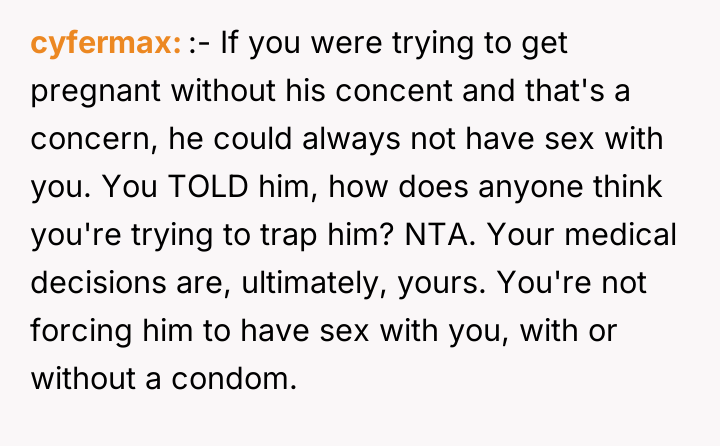
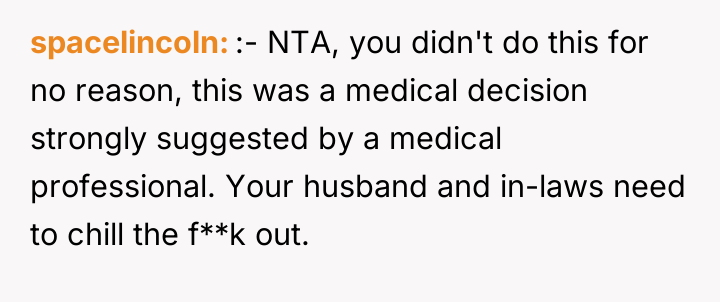
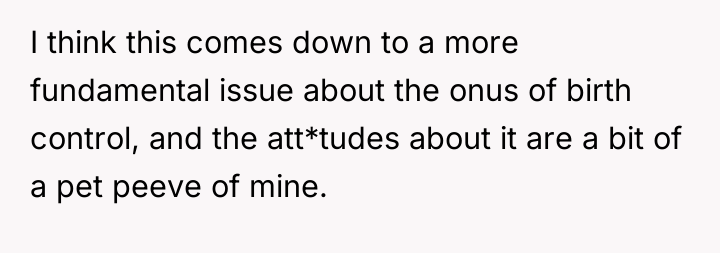
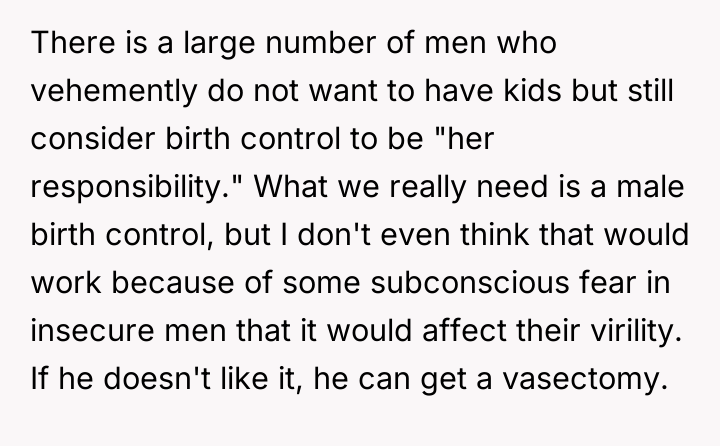
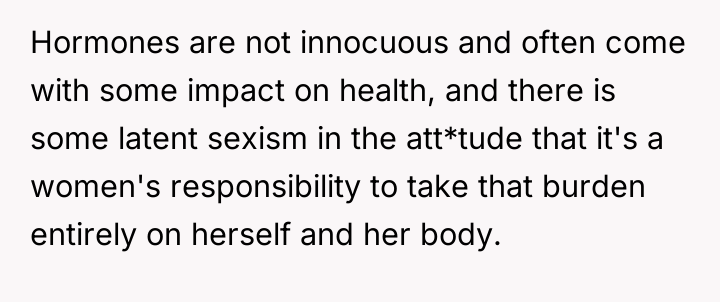
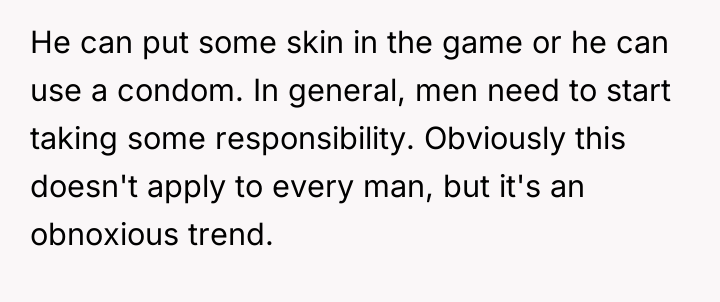
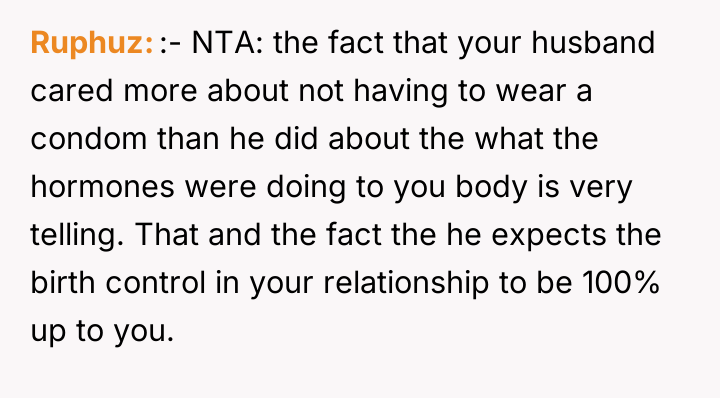


The original poster (OP) is facing significant conflict because she prioritized her health decision to remove a hormonal contraceptive implant without prior discussion, leading her husband and his family to fear she intends to conceive without his agreement. Her actions, taken quickly due to medical timing and a desire to avoid hormones, directly clashed with her husband's expectation of continuous, reliable contraception, escalating the situation into an issue of trust and control over reproductive decisions.
Given the disparity in how the decision was made—the OP acting on medical advice versus the husband reacting with fear of non-consent—the core question remains: Does a person have the sole right to remove their own long-acting, shared-risk contraceptive method without first consulting their partner, even when medical urgency is involved, or is the partner's right to consent to contraceptive cessation more important in a shared-risk situation?